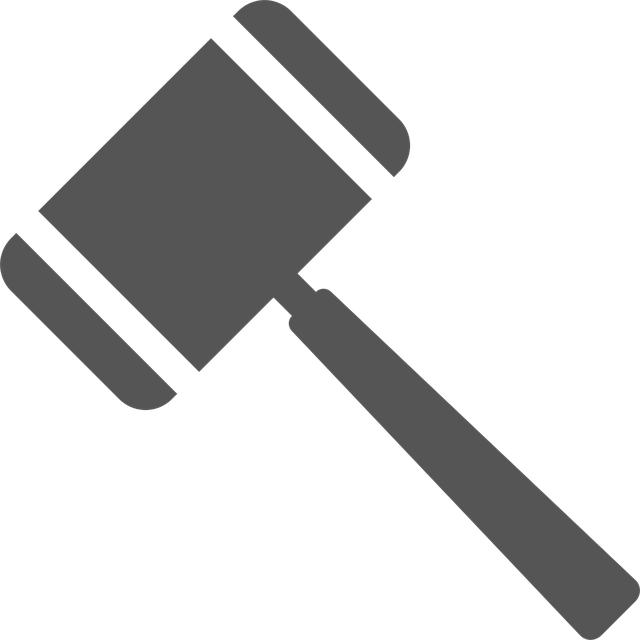The text emphasizes the multifaceted nature of fraudulent financial behaviors and the importance of recognizing patterns to identify them. It introduces the crucial role of competition law in promoting fair market conduct, deterring fraud, and fostering innovation as a shield against deceptive practices. The comprehensive approach involves investigative processes, enforcement like jury trials, and delving into industry norms, contrasting with general criminal defense strategies. Competition law ensures a level playing field, discourages collusion, and encourages businesses to innovate through quality and competitive pricing, ultimately driving economic growth and consumer welfare. Regulatory bodies use advanced tools and international collaboration to combat global financial fraud, promoting ethical practices and market integrity.
Fraudulent financial practices pose significant threats to markets, consumers, and economic stability. This article delves into the intricate web of deceptive behaviors, exploring their far-reaching consequences. We analyze the role of competition law as a pivotal tool for prevention, examining its ability to foster ethical practices and encourage innovation. Through compelling case studies, we demonstrate how robust legal frameworks can deter violations and protect consumers. By understanding these dynamics, stakeholders can navigate financial landscapes with enhanced vigilance and promote integrity in business operations.
- Understanding Fraudulent Financial Behaviors
- The Impact on Markets and Consumers
- Competition Law: A Tool for Prevention
- Case Studies of Competitive Violations
- Promoting Ethical Practices Through Regulation
Understanding Fraudulent Financial Behaviors

Fraudulent financial behaviors manifest in various forms, from accounting manipulation to insider trading. Understanding these practices involves recognizing patterns such as falsifying records, concealing assets, or using complex schemes to defraud investors and institutions. The role of competition law in innovation is often overlooked, but it plays a crucial part in identifying and deterring fraudulent activities by promoting fair market conduct.
In the context of financial fraud, competition laws serve as a safeguard, ensuring that businesses operate within ethical boundaries. All stages of the investigative and enforcement process, including jury trials for civil cases, are instrumental in holding offenders accountable. Unlike general criminal defense strategies, which focus on legal loopholes, fraudulent financial practices require an in-depth understanding of industry norms and regulatory frameworks to uncover and penalize malfeasance effectively.
The Impact on Markets and Consumers

Fraudulent financial practices have a profound impact on both markets and consumers, disrupting the very fabric of economic stability. When unscrupulous individuals or entities engage in deception, it can lead to widespread mistrust, causing a significant slowdown in investment and trade. Markets, driven by transparency and fairness, suffer as legitimate businesses struggle to compete with those employing fraudulent tactics. This creates an uneven playing field, hindering healthy competition that is the lifeblood of any thriving economy.
The Role of Competition Law in Innovation, while primarily focused on promoting fair business conduct, also plays a crucial role in mitigating fraud. By enforcing regulations that protect corporate and individual clients from deceptive practices, it ensures that respective businesses can operate with integrity. This fosters an environment where innovation flourishes, as companies are incentivized to enhance their products and services based on merit rather than misleading tactics. For his clients, this translates into better quality goods and services at fair prices, ultimately strengthening the market’s resilience against fraudulent activities.
Competition Law: A Tool for Prevention

Competition law plays a pivotal role in fostering innovation while preventing fraudulent financial practices. By promoting fair competition among respective businesses, it ensures that no single entity dominates the market, thereby discouraging collusion and anti-competitive behaviors. This legal framework encourages companies to focus on product quality, price competitiveness, and service improvement rather than engaging in white collar defense strategies that may involve deceit or manipulation.
The role of competition law extends throughout all stages of the investigative and enforcement process. It helps identify and rectify market distortions caused by fraudulent activities, ensuring a level playing field for all participants. This not only promotes economic growth and consumer welfare but also deters potential wrongdoers by demonstrating that such practices will not be tolerated. In essence, competition law acts as a crucial safeguard against fraudulent financial practices, fostering an environment conducive to genuine innovation.
Case Studies of Competitive Violations

The role of competition law in fostering innovation is a complex issue that often comes into focus when examining cases of fraudulent financial practices. These violations can range from price-fixing schemes to anti-competitive agreements, all of which undermine fair market principles. Case studies reveal how companies have exploited their competitive positions to engage in white-collar and economic crimes. For instance, a prominent example involves a cartel that colluded on pricing and allocation strategies across multiple industries, hindering consumer choices and stifling potential innovation by smaller competitors.
Competition law plays a crucial role throughout the investigative and enforcement process, ensuring that all parties involved are held accountable for their actions. By promoting fair competition, these laws aim to protect consumers, encourage innovation, and maintain a robust economic environment. In many cases, regulatory bodies work diligently to uncover such violations, using advanced analytical tools and collaborative efforts across international borders to combat global financial fraud effectively.
Promoting Ethical Practices Through Regulation

The promotion of ethical financial practices is a multifaceted endeavor, and regulation plays a pivotal role in this regard. Stringent rules and guidelines are essential to deterring fraudulent activities and ensuring the integrity of financial markets. Competition law, for instance, serves as a powerful tool in fostering innovation while preventing anti-competitive behaviors. By encouraging fair competition among respective businesses, these laws drive market efficiency and encourage ethical practices. This is particularly crucial across the country, where diverse financial institutions operate, and clients must be protected from deceptive schemes.
Regulators can enhance ethical conduct by imposing transparent reporting requirements, robust internal control mechanisms, and independent auditing processes. Such measures not only deter fraud but also enable stakeholders to make informed decisions. Moreover, regulatory bodies should encourage a culture of accountability among financial professionals, ensuring that they act in the best interests of their clients rather than prioritizing personal gains or short-term profits at the expense of ethical standards.
Fraudulent financial practices pose significant threats to markets, consumers, and economic stability. However, competition law emerges as a powerful tool to prevent such misconduct by fostering ethical business behaviors. As seen in case studies, enforcing competitive laws can deter harmful actions and promote innovation. Regulation that emphasizes transparency and integrity encourages companies to prioritize long-term sustainability over quick gains, ultimately benefiting the entire ecosystem. By understanding the impact of fraudulent behaviors and leveraging competition law, we can navigate a more trustworthy financial landscape and encourage the role of innovation driven by ethical practices.






